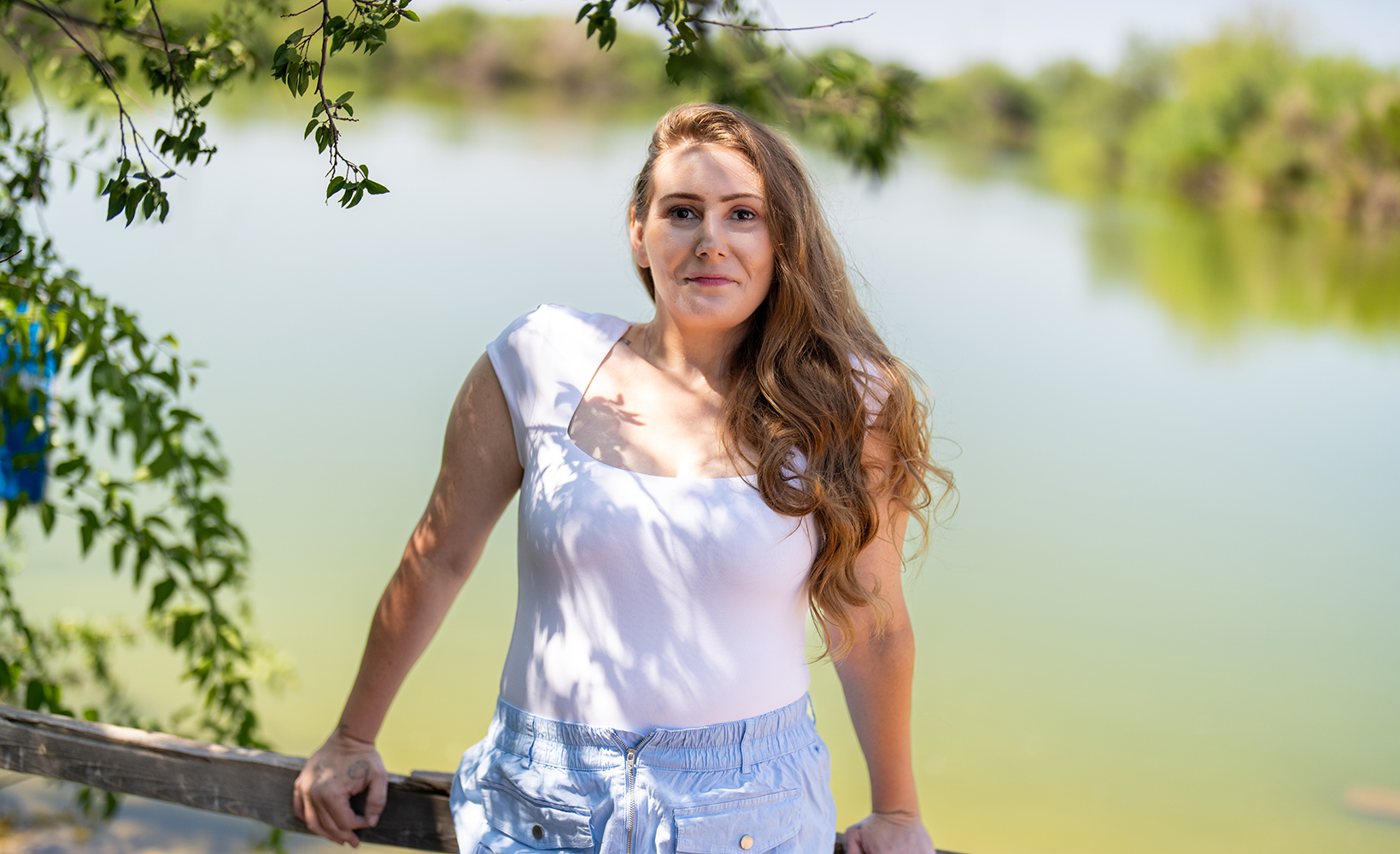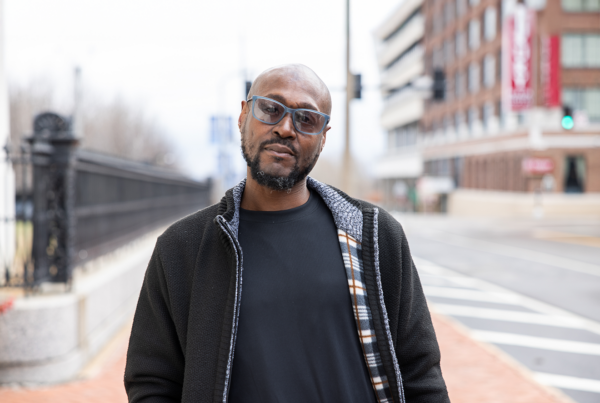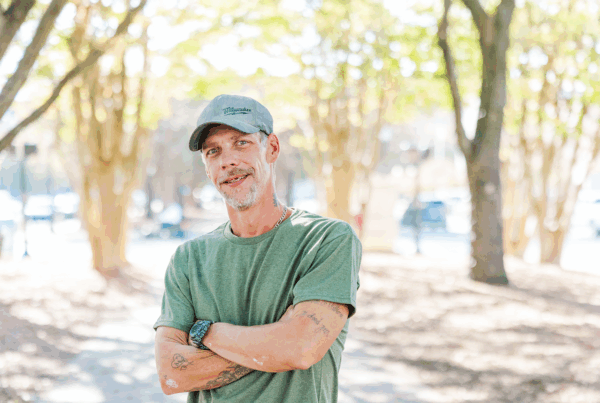Caleigh did everything we say people should do to rebuild their lives: she was sober, working at a car wash, and caring for her newborn son. After years of addiction, her life was finally stabilizing. Then came a knock at the door.
“I had already gotten sober and had a baby.”
“They were old drug charges,” Caleigh said. “I had already gotten sober and had a baby. It definitely put a ringer on my life.”
The charges dated back to an earlier period of substance use – what Caleigh calls her “on the run” years. In Arizona, it’s not uncommon for prosecutors to delay filing drug-related charges while awaiting lab results or building a case. For Caleigh, that meant an arrest four months after giving birth.
“They pretty much uprooted my whole life,” she said.
Caleigh’s story reflects a broader policy failure. Jailing people in crisis isn’t just common – it’s by design. Across the country, untreated mental illness and addiction are met not with care, but with incarceration.
Research shows that individuals with serious mental illness (SMI) are vastly overrepresented in the criminal justice system. Federal data indicates that nearly half of those in jail report a history of mental illness – compared to just 3.3% to 5.7% of the general adult population. More than 60% meet the criteria for drug dependence or abuse. People with co-occurring disorders are arrested at 12 times the rate of those with neither condition.
These arrests are often not for serious crimes, but behaviors linked to untreated illness – confusion, public disturbances, or erratic behavior that are mischaracterized as criminal. Once in jail, symptoms tend to worsen. For those living with addiction, even a short jail stay can drastically increase the risk of overdose upon release.
Cash bail makes matters worse. About one-third of people with a serious mental illness earn less than $10,000 a year, making even modest bail amounts unaffordable. As a result, many remain jailed for weeks or months awaiting trial.
Caleigh was one of them. Her bond was set at $4,500 – well beyond her reach.
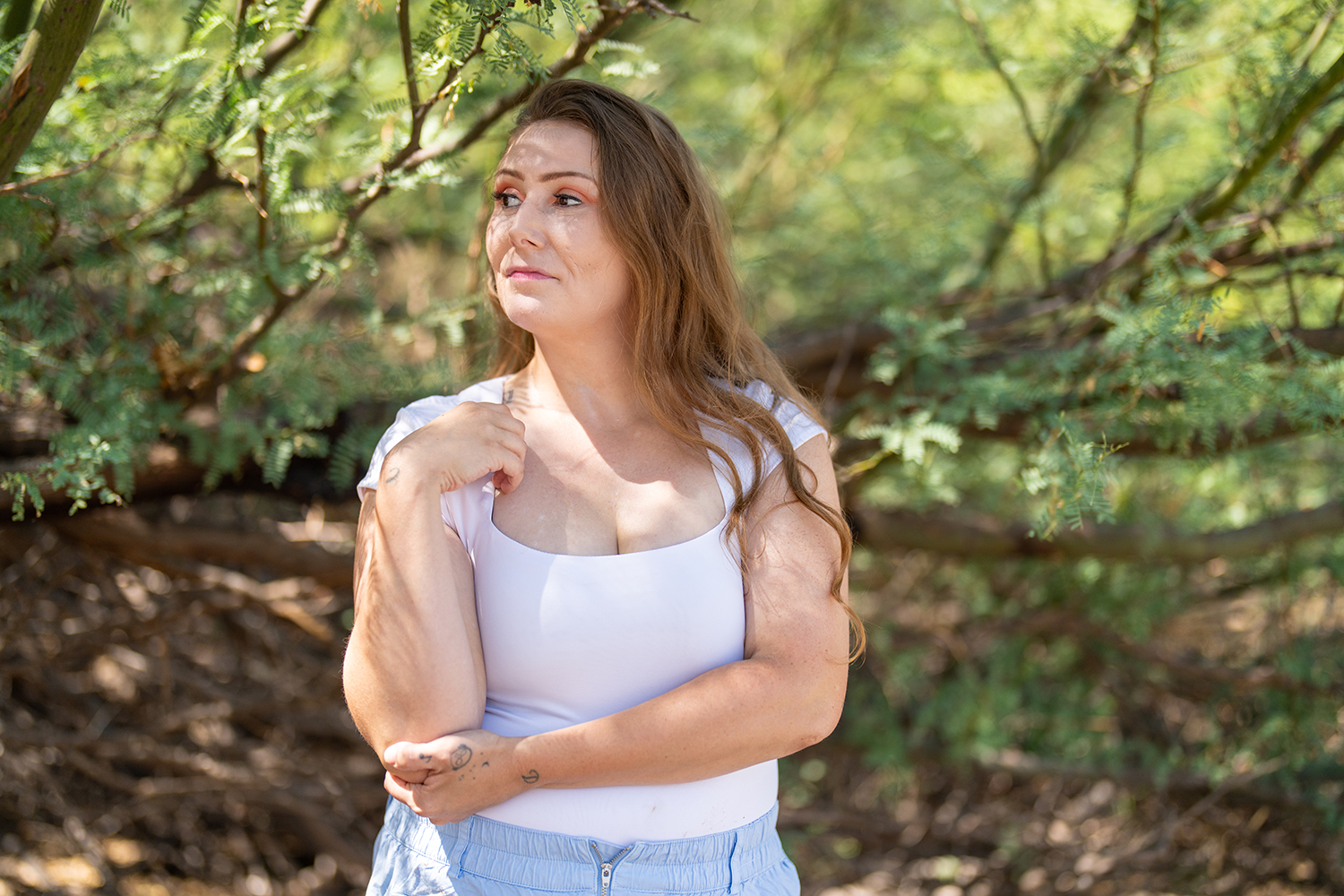
“We couldn’t pay [the 10% for a bail bond] because you had to have the collateral,” she explained. “So that’s why we had to contact you guys,” she said, referring to The Bail Project. “Otherwise I would’ve been stuck in jail that whole time and wouldn’t have been able to be with my son.”
After four weeks in jail, The Bail Project posted her bail and she was able to return home. She complied with every court requirement and never missed a date. She didn’t pose a risk: she simply needed the chance to go home to her child while her case moved forward.
For a few months, she cared for her baby while preparing to serve a nine-month sentence under a plea deal that could have been much longer.
“Because I was sober, because I was doing the things that I was supposed to be doing, I was able to get the nine months,” she said. “My lawyer worked with me on that end.”
Still, jail meant being separated from her children and a painful disruption to her recovery.
“I could just tell that he wasn’t bonding with me the same way.”
“I could just tell that he wasn’t bonding with me the same way,” she said of her infant son. “He would cry for his dad more than he would cry for me.”
Her son was four months old when she was taken away. Not because she was dangerous, but because she couldn’t afford bail. When she returned home, he was a different child.
“He was walking. He was talking. And he wasn’t doing any of that when I had left.”
Her two older children, who live with their father, were in school at the time. “That was a little bit easier,” she said. “We just kind of explained it to them the best way that we could.”
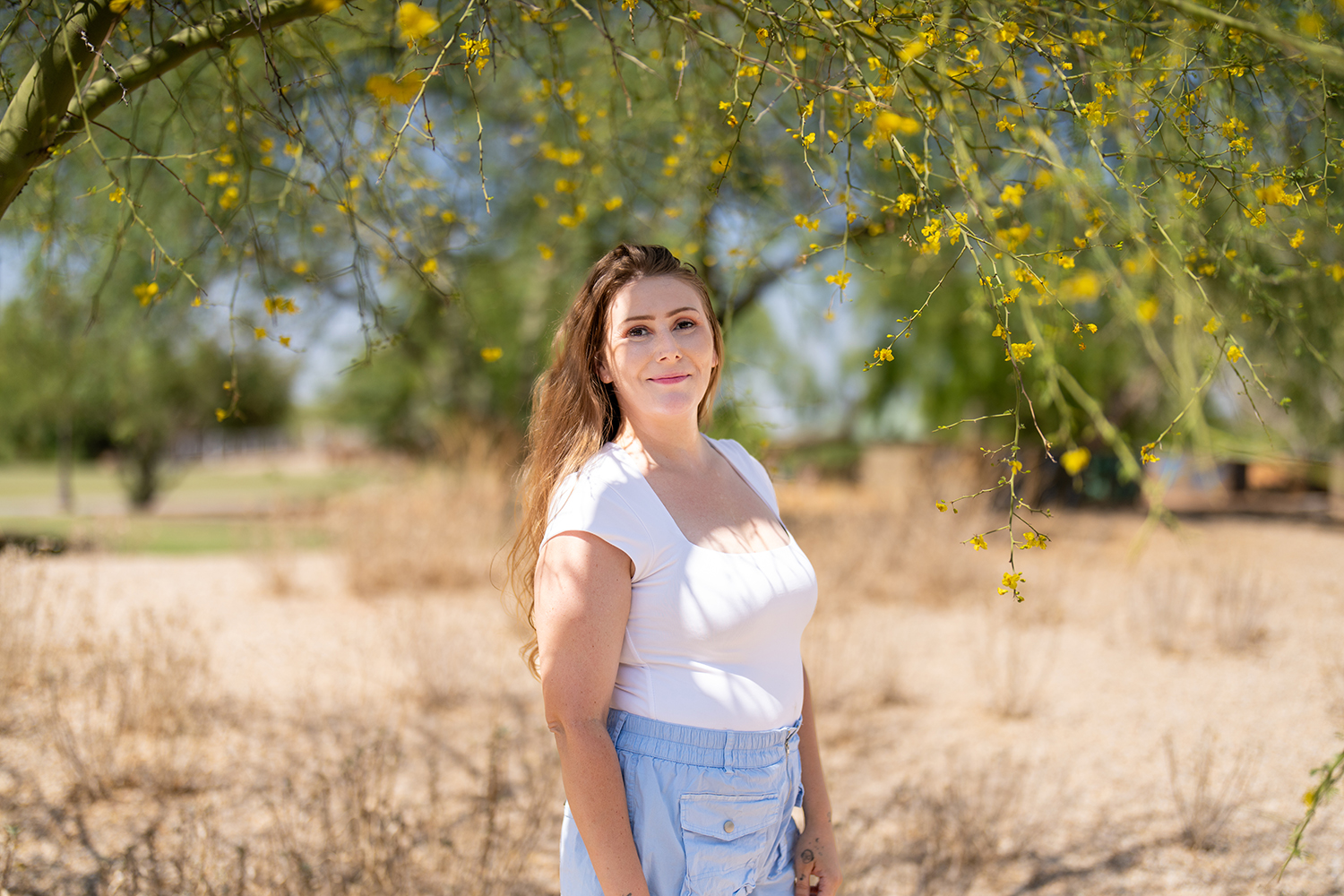
At Estrella Jail, Maricopa County’s women’s facility, there were no in-person visits – only video calls. “That is nice,” she said, “but when you have an infant, they don’t really know what’s going on on that video.”
On top of everything, she struggled with postpartum depression. “If you were like me and you have postpartum depression in jail, it’s no fun,” she said. “You go and see the mental health advisor and yeah, they’ll put you on medications and stuff, but as for like groups or anything like that specifically towards postpartum – no.”
She wishes more support existed for incarcerated mothers. “I would just make more options or more programs readily available to these women,” she said. “There are other states where they have specific housing for these women. If I could do something like that, I would. Just put these women together, you know?”
Estrella Jail, she said, was “one of the worst jails in the f—ing country.”
“We only get two meals a day,” she said. “It’s basically dog food… slop.” She noted that people in other jails have more variety, or at least fresh meals. “We don’t.”
The jail’s dormitory-style housing, which can hold up to 128 women per pod, only added to the stress. “Very noisy. Very loud. You can’t sleep,” she said. “You got all the sick people in one place,” she added, referring to how people withdrawing from substances are often grouped together.
One thing that helped her endure was solidarity among women in jail – many of them also mothers.
“That’s the communicating that you have to do,” she said. “Instead of just sitting there in your bunk all day.”
Her advice to other mothers in jail: don’t isolate yourself.
“Go to meetings. Really, that’s what helped me. It was just talking to people,” she said. “If you sit there and deal with it in your own head… that’s all you really have when you’re incarcerated, is the people around you.”
She believes there are ways to hold people accountable without destroying their lives.
“It’s not really just for pregnant women either. It’s for all women, all people in general,” she said. “We do make our own mistakes… but they don’t understand that it is uprooting us from our life. People lose jobs. People lose their houses.”
Caleigh had already started turning her life around. “They didn’t really know if I was sober or not, so I really had to show that,” she said. “But yeah, really, they just uprooted me out of my life.”
Her experience highlights how the criminal justice system often fails to recognize progress made by people in recovery.
“You can be sober and still get treated like you’re not,” she said.
Still, she still believes in second chances and wants others to know it’s never too late.
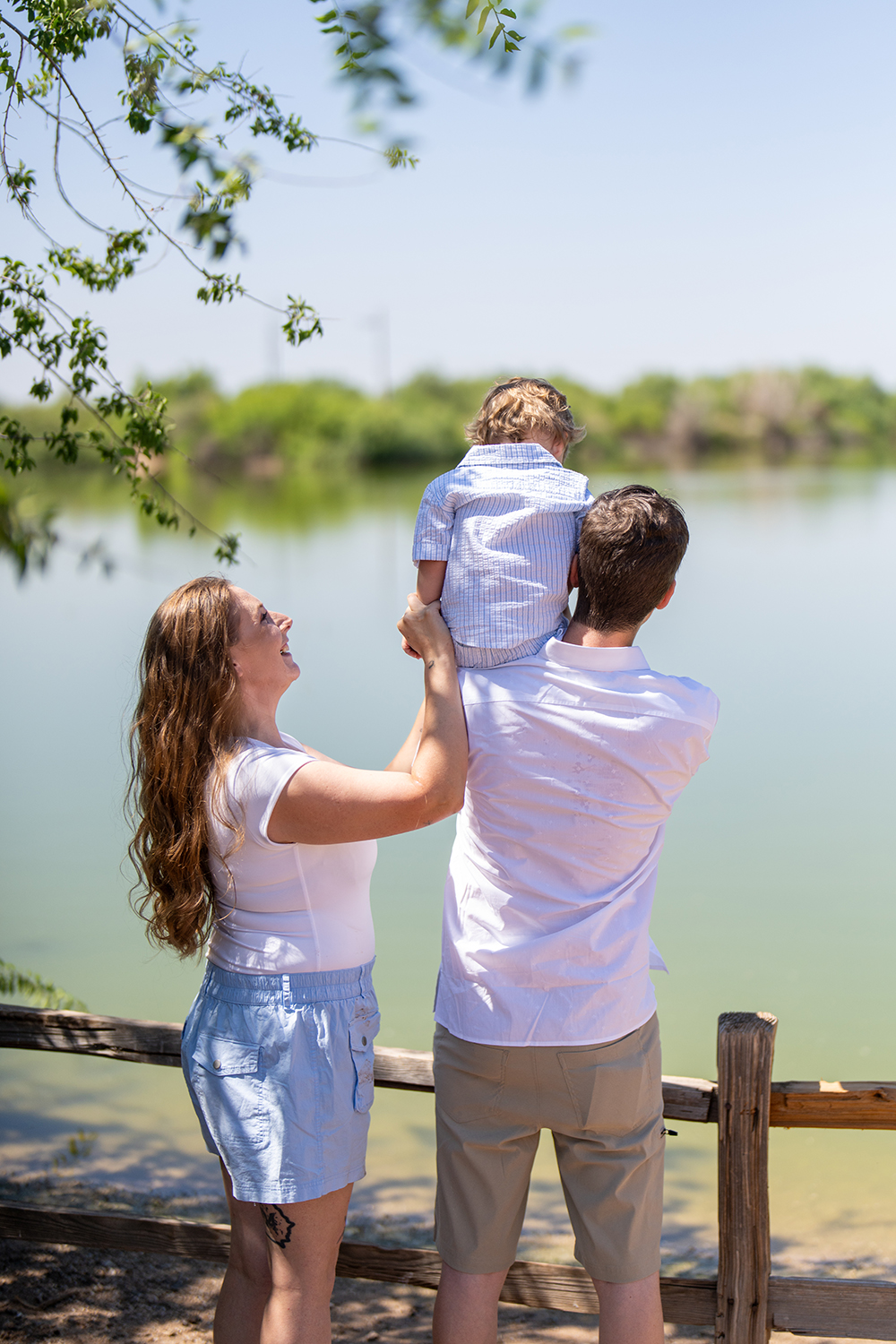
“Your kids still wanna see you. So you can always turn your life around.”
“Everybody has the opportunity to change their life around,” Caleigh said. “It don’t matter if you haven’t seen your kids for five years. Your kids still wanna see you. So you can always turn your life around.”
Thank you for reading. The Bail Project is a 501(c)(3) nonprofit organization that is only able to provide direct services and sustain systems change work through donations from people like you. If you found value in this article, please consider supporting our work today.







